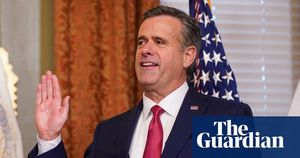Horst Köhler, the former President of Germany, passed away on February 1, 2025, at the age of 81, after battling a brief but serious illness. Tributes from across the political spectrum have flooded in, underscoring the impact he had as the ninth President of the Federal Republic of Germany from 2004 to 2010.
Current President Frank-Walter Steinmeier expressed deep gratitude for Köhler’s contributions, stating, "We can only be deeply thankful to have experienced Horst Köhler as our President." This sentiment was echoed by Bundesratspräsidentin Anke Rehlinger, who noted, "With Horst Köhler, we lose someone who has achieved great things for our country and internationally." Such acknowledgments capture the sorrow felt not just by politicians, but by many citizens who admired Köhler's leadership.
Born on February 22, 1943, in Skierbieszów, Poland, Köhler’s early life was marked by turmoil and displacement. His family fled from wartime strife, moving first to Leipzig and later to West Germany after escaping East Germany. Köhler eventually pursued academics, earning degrees in economics and political science before embarking on a distinguished career. Notably, he served as the head of the International Monetary Fund before entering politics.
Köhler took office as President as a relative unknown. Yet, through his tenure, he became known for promoting ideas of economic stability and responsible globalization. He famously urged for Germany's involvement and partnership with Africa. "For me, the humanity of our world is determined by the fate of Africa," he stated upon assuming office, showcasing his commitment to fostering international connections and developmental goals.
He was known for his clear ideals and would often challenge political decisions, balancing compassion with accountability. Ministerpräsident Hendrik Wüst praised him not only for his service but also for his clear stance on justice, inclusivity, and global responsibility. Wüst remarked, "Köhler was not just any president; he was deeply committed to issues of justice and globalization.”
Another facet of Köhler’s presidency was his unexpected resignation in May 2010, which surprised many after he made controversial comments during interviews about military involvement and economic interests abroad. This incident sparked extensive debate and left many questioning the state of political backing and support he received during his tenure. Steinmeier commented on this, reflecting on Köhler's initially high public approval ratings versus the political tumult he faced.
Beyond his presidency, Köhler continued to engage with issues close to his heart, particularly advocating for sustainable global partnerships and emphasizing the significance of equal treatment of African nations. Many leaders, including Christian Lindner, the leader of the Free Democrats, commented on Köhler's foresight and dedication to these causes. Lindner noted, "He was seen as a symbol of responsibility, always reminding us of our global obligations toward Africa.”
Throughout his life, Köhler embodied resilience and vision, characteristics ingrained in him from childhood experiences of displacement. His optimism and steady spirit are reflected not only in people’s memories but also through the various initiatives he championed after his presidency, including prominent roles with international agencies and support for climate action.
Today, as the political community reflects on Köhler’s legacy, they are reminded of his authentic service and the heartfelt contributions he made to Germany and the world. The tributes will undoubtedly continue as many honor not just his position, but the human behind it—an individual recognized for warmth, clarity, and unwavering dedication to progress.
Germany has lost not just a president, but a true statesman who dared to challenge norms, advocate for justice, and remain committed to fostering global unity.



